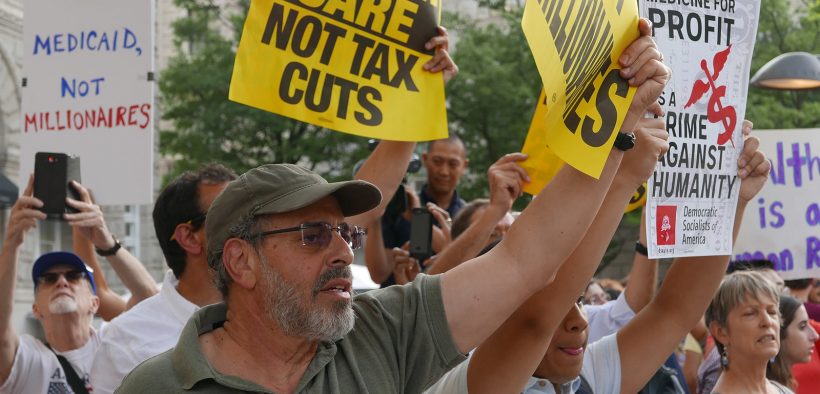First Study On Medicaid Work Requirements Finds No Boost In Employment

“Based on our results so far in Arkansas, it doesn’t appear that this particular policy is accomplishing its goals.”
According to a new study published in the New England Journal of Medicine, work requirements for Medicaid resulted in thousands of people losing their health insurance while failing to boost employment. Arkansas, the first state to implement the Trump administration-endorsed policy, hoped that work requirements would encourage Medicaid recipients to seek out employment.
“The idea of work requirements is to get people into new jobs and private insurance. But in our study that didn’t happen,” said the study’s lead author, Dr. Benjamin Sommers, in a press release. “We didn’t find any employment changes and instead we see Medicaid coverage rates dropping and more people without health insurance – usually because the process itself was confusing or beneficiaries didn’t even know about the new requirements.”
Over 18,000 people lost coverage in Arkansas over the six-month period, many of whom were employed but did not work traditional jobs or were simply unaware of the policy change. Under the new rules, Medicaid recipients had to prove they worked or volunteered at least 80 hours a month or participated in job training.
Federal Judge Overrules Work Requirements
The Trump administration has approved work requirement laws in eight other states and six more have applied, but Arkansas has been the only state to fully implement them. However, a federal judge struck down Arkansas’ work requirements in March, arguing they contradicted the original purpose of Medicaid, which is to provide healthcare for poor people.
“Weighing the harms these persons will suffer from leaving in place a legally deficient order against the disruptions to the State’s data-collection and education efforts due to vacatur renders a clear answer: the Arkansas Works Amendments cannot stand,” Judge Boasberg wrote in his ruling.
Department of Health and Human Services (HHS) head Alex Azar has disputed evidence that work requirement laws push thousands off insurance, reasoning that “there was a fairly strong indication” that people who lost coverage did so because “they got a job in this booming economy.” According to Politico, the HHS could not provide data to back up Azar’s claim when asked.
“They have absolutely no idea what happened to the 18,000,” Joan Alker, executive director of Georgetown’s Center for Children and Families, told Politico. “And it’s highly unlikely since the state’s own data shows that less than 1 percent of those impacted are newly reporting work,” said Alker, citing recent analysis.
Seema Verma, the Trump administration official who heads the Centers for Medicare and Medicaid Services, has been one of the strongest advocates of Medicaid work requirements. Earlier this year, Verma came under fire from ethics officials for directing millions in taxpayer dollars to consultants and PR firms that seek to influence public opinion regarding health care policy.
Arkansas officials challenged the findings, arguing that six months was not a long enough period to determine long-term results of the policy. According to Politico, they also criticized the researchers for not asking why so many people had failed to enroll.
In March, Seema Verma issued guidance for the administration’s work requirement initiative, and the Trump administration is currently appealing Judge Boasberg’s rejection of Arkansas’ work requirements. But while the White House will likely continue to push for the controversial policy, the new NEJM study will provide factual evidence to challenge it.
“Based on our results so far in Arkansas, it doesn’t appear that this particular policy is accomplishing its goals,” said Harvard’s Benjamin Sommers, the study’s lead author.











